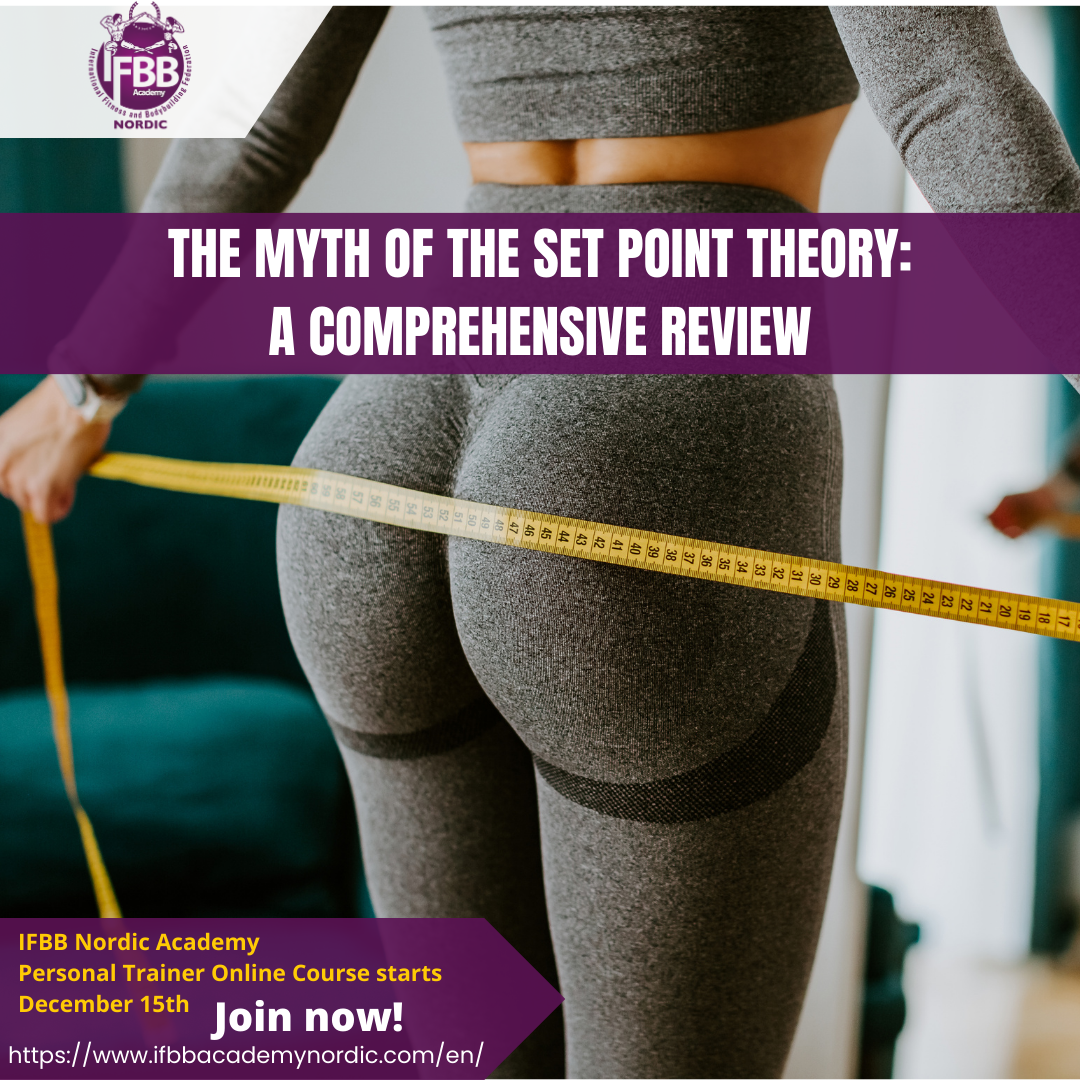The Myth of the Set Point Theory: A Comprehensive Review

Introduction: What is the Set Point Theory?
The Set Point Theory has long suggested that our bodies have a predetermined "set point" for weight, acting like a thermostat to regulate fat storage and metabolism. This idea has been circulating for years and has been particularly popular for explaining why some people seem to struggle with weight management more than others. However, a closer look at the science behind body weight regulation reveals a different story.
Body Components vs Body Weight: The Complexity of Regulation
First off, it's important to recognize that body weight is far from a homogenous entity; it consists of multiple components, such as fat mass and lean mass, including organs like the liver, brain, heart, and kidneys. Each component contributes differently to overall body weight and is regulated separately. The lack of a single regulating mechanism for all these components effectively dismisses the notion of a universal set point for body weight.
The Role of Fat Mass
Research indicates that feedback regulation may largely stem from fat mass. Studies involving surgical removal or transplantation of fat in animals have shown compensatory changes in fat storage. Additionally, extreme obesity phenotypes suggest that how efficiently these processes work could be genetically influenced. However, fat mass itself varies in location, metabolic function, and response to weight changes, necessitating a nuanced understanding of its regulation rather than simplifying it to a singular set point.
Energy Balance and Macronutrient Metabolism
Energy balance is crucial in understanding body weight. While increased energy expenditure often leads to increased energy intake, the reverse is not necessarily true. Underfeeding and overfeeding also induce metabolic adaptations that seek to minimize energy imbalance, such as changes in energy expenditure and activity levels regulated by hormones like thyroid hormones and leptin. However, this does not support the existence of a set point; instead, it suggests that the body aims for equilibrium through various "settling points."
Regulation of Carbohydrates, Proteins, and Fats
Contrary to the set point theory, individual macronutrients are regulated differently. For example, carbohydrate balance is tightly controlled, while fat and protein balances are not. This suggests that if there is a 'set' for body weight, it is more likely linked to carbohydrate balance rather than an overarching set point that controls all aspects of body composition.
Debunking the Myth: The Conclusion of Recent Reviews
Recent reviews, including one by Geary (2020), agree that humans do not have a predetermined set point for weight. These adaptations are more about reaching equilibrium and are largely influenced by lifestyle choices.
The Non-Existence of Metabolic Damage
Another common misconception related to the set point theory is the idea of "metabolic damage," suggesting that extreme conditions like starvation or excessive dieting like physique athletes' competition preparation, could permanently lower one's metabolic rate. Contrary to this belief, even under such extreme conditions, the metabolic adaptations are temporary and are primarily regulated by the hormone leptin. (Isola et al. 2023.)
The Reality: Lifestyle Choices Determine Body Fat Levels
The notion that we're prisoners to a predetermined set point is not only scientifically unfounded but also potentially damaging, as it takes away the emphasis from individual agency and lifestyle choices in managing weight.
Final Thoughts: Time to Abandon the Set Point Theory
The Set Point Theory simplifies a complex system of individual organ and macronutrient regulation to a single overarching principle, which the evidence does not support. Instead of focusing on an elusive "set point," it would be more beneficial to focus on the lifestyle changes that positively influence body composition.
By understanding that there is no universal set point for body weight, we empower ourselves to take proactive steps in achieving and maintaining our health goals. Instead of relying on a debunked theory, it's time to acknowledge that our lifestyle choices significantly determine our body composition.
References:
Geary, N. (2020). Control-theory models of body-weight regulation and body-weight-regulatory appetite. Appetite, 144, 104440.
Isola, V., Hulmi, J. J., Petäjä, P., Helms, E. R., Karppinen, J. E., & Ahtiainen, J. P. (2023). Weight loss induces changes in adaptive thermogenesis in female and male physique athletes. Applied Physiology, Nutrition, and Metabolism, 48(4), 307-320.
Müller, M. J., Bosy-Westphal, A., & Heymsfield, S. B. (2010). Is there evidence for a set point that regulates human body weight?. F1000 medicine reports, 2.
